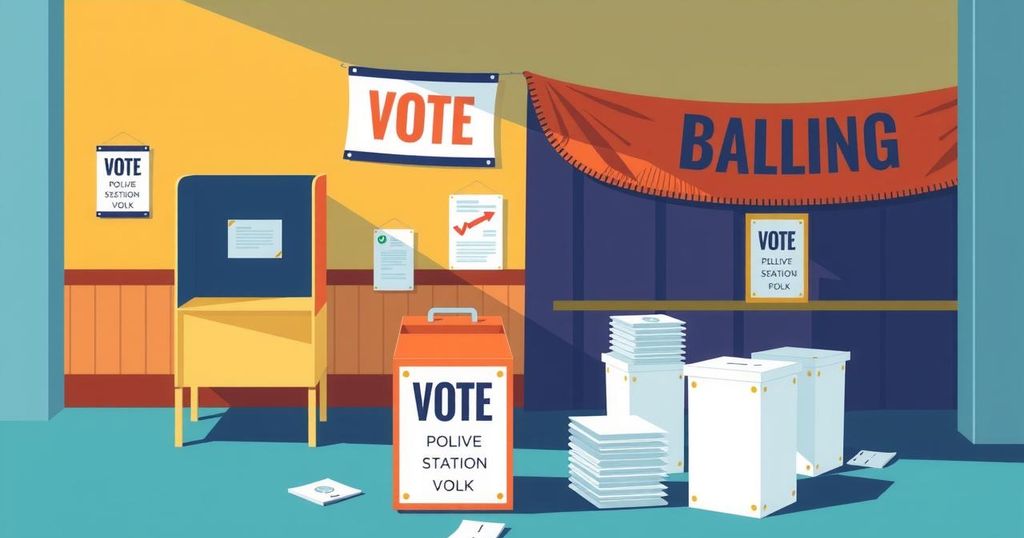World news
AMERICA, AMERICAN ZIONIST MOVEMENT, AZM, BETH YESHURUN, ELECTIONS, HESS, ISRAEL-GAZA CONFLICT, JHV, MIDDLE EAST, MIDDLE EAST CONFLICT, NORTH AMERICA, ORG, PEW CENTER, PEW RESEARCH CENTER, U. S, UNITED STATES, VOTER TURNOUT, WORLD ZIONIST CONGRESS, WORLD ZIONIST ORGANIZATION, WZC, WZO, YI, YIZHAR HESS, ZIONIST CONGRESS, ZIONISTELECTION
Fatima Alavi
0 Comments
World Zionist Congress Election: Boosting Participation and Representation
The 39th World Zionist Congress election is currently underway in the U.S. with efforts to boost voter turnout among American Jews. Yizhar Hess leads initiatives to increase participation, aiming to surpass the previous election’s 124,000 ballots. This year’s event features 21 diverse candidate slates, and voting continues until May 4. Significant issues include the representation of various Jewish movements and the desire for equal recognition of religious practices in Israel.
The elections for the 39th World Zionist Congress (WZC) have commenced, aiming to enhance voter turnout, particularly within the American Jewish community. Yizhar Hess, the vice chairman of the World Zionist Organization, is actively engaging in this effort. He emphasized his commitment to increasing participation, reflecting on the previous election’s low voter turnout of 124,000 ballots, which represented less than 3% of eligible voters based on a Pew Research study identifying 5.8 million Jewish adults in the U.S.
Voting, which is ongoing from March 10 to May 4, can be conducted online via zionistelection.org, where a registration fee of $5 is required. In Texas, the 2020 election saw participation from only 2,054 Jewish adults out of an estimated 176,000, marking a mere 1% turnout. To address this, Yizhar Hess will personally visit Houston for Shabbat services from March 21-23 to encourage greater electoral participation.
Hess maintains that increased voting is essential for American Jews, stating it could significantly boost funding for Jewish activities such as camps and educational programs. He noted the voting dynamics, indicating that the Orthodox Jewish population, although a minority, had a notable representation in previous elections. The WZC proceedings will elect 525 delegates, determining vital policies that govern over $5 billion allocated to Jewish organizations globally.
The election process involves 21 diverse slates of candidates, with 152 delegates to be elected from the U.S. and others from Israel and the Diaspora. Proposed qualifications for voters include being Jewish, over 18 years old, and a resident citizen of the U.S., with an acceptance of the Jerusalem Platform, which highlights commitment to Zionism, opposition to antisemitism, and the rights of Jews worldwide.
This election presents an unprecedented chance for American Jews to influence issues central to their religious practices, as only Orthodox customs are currently acknowledged in Israel. A coalition of Reform, Conservative, and Reconstructionist delegates is forming to advocate for the recognition of their practices and equal standing in Israeli society. Rabbi David Lyon underscores the importance of participating in the election: voting from abroad enables American Jews to affect funding and standards essential to their communities.
In total, 15 candidates from Houston are competing in this election, which includes a record number of slates reflecting a wide array of political and spiritual perspectives within Judaism. Among the candidates are prominent figures such as Rabbis David Lyon and others, representing a spectrum of ideologies. Voters are encouraged to participate by visiting zionistelection.org to cast their ballots and make their voices heard in this significant democratic exercise.
The 39th World Zionist Congress election marks a crucial opportunity for American Jews to enhance their representation and influence over Jewish communal policies and funding. With a push for increased voter turnout led by Yizhar Hess and prominent candidates from Houston, this election aims to rectify past engagement deficits. By facilitating a platform for diverse Jewish perspectives, the WZC also seeks to ensure more equitable recognition of various religious practices in Israel, reflecting the pluralistic nature of Jewish identity today.
Original Source: jhvonline.com




Post Comment